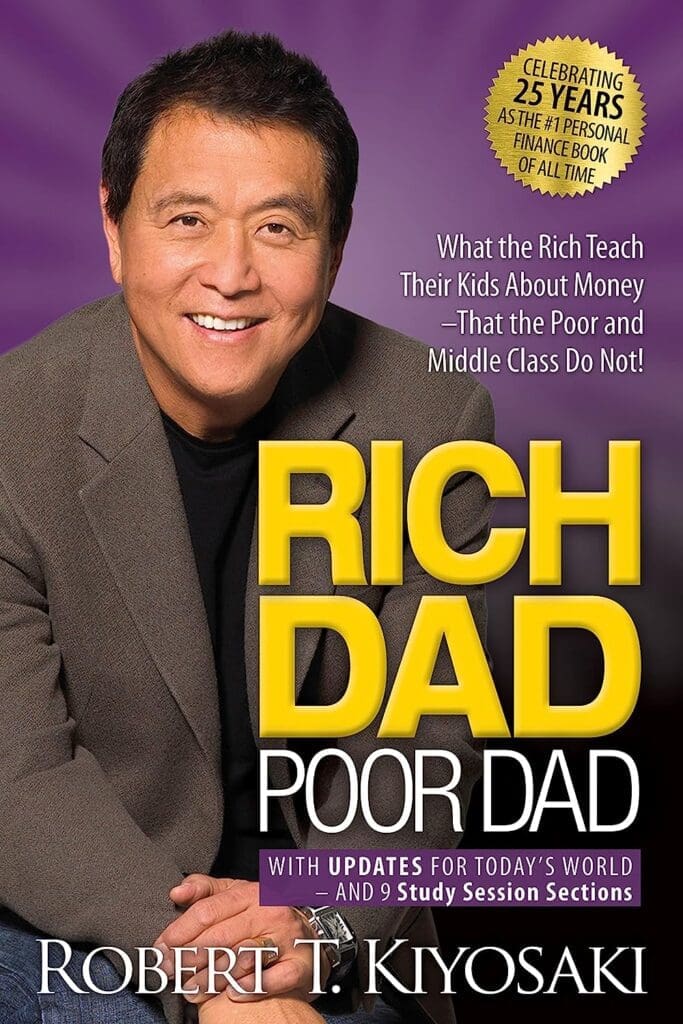

Have you heard about the 1997 bestseller Rich Dad Poor Dad by Robert Kiyosaki and wanted to know what all the fuss was about? Here is a critical review of this famous book to help you decide if it’s right for you.


Rich Dad Poor Dad is a 1997 book written by Robert Kiyosaki that highlights the differences between what he calls his “rich dad” and “poor dad.” He uses these two characters to discuss financial education, personal finance, money management theories, and more. The book has gone on to become one of the most popular books on entrepreneurship in the world, making it a must-read for any aspiring business owner.
Kiyosaki’s poor dad is his actual father. He represents most fathers who advise their children to work and study hard as his dad did himself. But the point Kiyosaki makes is that this will not make you wealthy. His rich dad is the father of his childhood friend.
He taught Kiyosaki that if you want to be rich you should not work hard at all but should let your money work hard for you. You do so by buying assets from your money instead of liabilities.
These assets, in turn, think about a property to let or shares in the stock market, which will make money for you while you sleep. As long as you trade time for money, 99% of us will never get wealthy.


One of the primary criticisms that were pointed out about Rich Dad Poor Dad is its criticism of traditional college education. Robert Kiyosaki’s thesis mainly focuses on investing as a way of building wealth and often belittles traditional forms of higher education, such as attending university or getting a professional certification.
While investing can be a sound method to build your financial portfolio, traditional higher education still plays an important role in helping people advance their careers.
Other than helping people advance in careers education gives people a different kind of wealth and rich knowledge. However, I personally agree with Kiyosaki that traditional education is lacking teachings about how to accumulate wealth.
How to spend your hard-earned money wisely. How to invest in assets rather than liabilities. But then again perhaps governments do not include this education on purpose. Because where do all the consumers go if everybody only buys assets and not liabilities? And if everybody gets wealthy by investing in assets, who will be left to do the actual work?
It’s important to understand the concepts that Robert Kiyosaki outlines in Rich Dad Poor Dad and decide for yourself whether or not they are applicable to your individual situation.
While investing your money and being smart with debt can be a great way to build wealth, everyone’s unique financial situation will require a customized approach when it comes to building their portfolio.
Ultimately, readers should seek out resources from multiple sources before making any financial decisions.
Critics of Rich Dad Poor Dad have noted a number of potential oversimplifications in the book, as well as somewhat controversial concepts.
Some of the premises described in the book have been challenged by experts who suggest that marginal tax rates may be higher than Kiyosaki implied, as well as understanding that not all debt is bad debt.
Additionally, some have called into question whether Kiyosaki’s advice to invest in real estate could be perfectly translated for all readers depending on individual economic circumstances and regional differences.


Then again, I feel many of Kiyosaki’s teachings are valid. They are perhaps not meant to copy and paste but meant to make you start to think in a different way. Indeed, not all debt is bad. My own grandfather purchased his house in the ’60s for around 30,000 USD.
This house is now estimated at 450,000 USD. The point is not the increase in the value of the house. If he were to sell his house, he still needs to live somewhere, and all the other houses have gone up in price equally.
The point is that the once tremendous debt of 30,000 USD now seems peanuts for a mortgage. Just like house prices rise with inflation. The value of 1 dollar, in other words, decreases. Debt becomes less of a burden because of the same fact.
After reading Rich Dad Poor Dad, it’s important to ask yourself some key questions. Do you understand the potential risks of investing in real estate? We do not suggest, as explained above, that you copy-paste Kiyosaki. Are there tax credits that could work for you individually, given your specific financial circumstances?
Do you have a plan for setting up and managing your investments? Has it become clearer which types of debts are good and bad for you? Have you identified which opportunities to invest in will drive better returns over time? By critically assessing Kiyosaki’s methods and advice with a clear eye toward your own unique financial situation, you can get the most out of this bestselling classic.